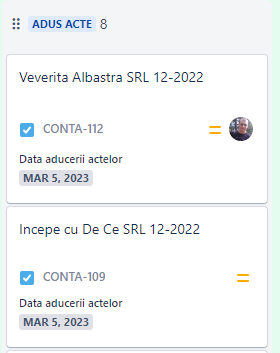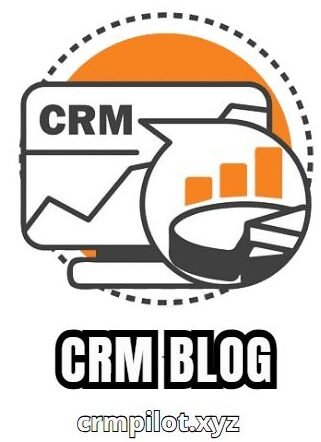CRM (management of customer relations) means in free translation Management of customer relations. A little vague, right?
In fact, CRM represents a process of collecting and analyzing data on potential and existing customers, which aims to attract and loyal loyal. Most of the time, however, the term refers to a database software that provides you detailed information on your customers’ profile, their needs and the following phases of their interaction.
All for you to offer them a personalized experience and implicitly increase sales in a proactive way, based on real information.
Why is a CRM important?
Studies show that you have 60-70% more than the possibility of selling to an existing customer, compared to 5-20% to be sold to a new customer. Therefore, you want to know many details about them, to give them a pleasant and worried experience, every contact with your company.
But you can’t do it if the information is dispersed in different places such as an E -mail from a seller or the accountant’s invoices.
Your customers will hear it. For example, when one of them sounds to assistance to customers, their impression is that I speak directly with the company as an entity, even if they actually interact with one or more representatives. Therefore, the latter must be aware and have the history of customers at hand (more recent orders, notifications, reviews, etc.) to serve them promptly and in the right context, without wasting time to ask for further information.
An CRM system can help the entire team to make customers feel appreciated and satisfied. An aspect that will make them resort to your company’s services can also recommend it.
What is an CRM system?
An CRM system is a program for the collection and analysis of each point of contact with the client.
We are talking here about the data sent by modules, responses to marketing campaigns, conversations with support service, which are available for all team members in the form of a well -organized database. And that can be used to anticipate customer needs, optimize the loyalty rate and increase teamwork.
In particular, the implementation of a CRM system helps to predict sales, the segmentation of customers, the planning of the marketing campaign, the development of new features and services, which implicitly leads to an increase in turnover and profit.
How a CRM system helps each department
We have already established that the purpose of a CRM system is to manage the relationship with customers in order to faithfully do and transform them into recurring customers. Therefore, CRMs are confused as programs that only serve the sales team.
Although they were designed when they were initially introduced in the 80s, CRM systems evolved in such a way as to serve each department of a company. Let’s see how:
- sale – helps to determine the duration of the sales cycle, improve the conversion rate from the potential customer to real customers, establish sales commissions and guarantee a continuous sales flow (pipeline).
- Marketing – The most detailed knowledge of customers allows a more accurate segmentation of the customer base, the planning of targeted marketing campaigns, the identification of new promotion opportunities and the attraction of a greater number of satisfied customers.
- Relationships with customers -Centralization of data relating to customers in a place leads to the improvement of the services offered and shortening of waiting times, which has a direct impact on the reviews received.
- appointment – The analysis of the interactions with customers contributes to the improvement of services and the development of new features that come to their aid and the other departments.
What advantages does a CRM have?
In addition to the main advantage of the increase in turnover, a CRM system has other less obvious advantages such as:
- Increase in the customer loyalty rate – A customer management program is a good tool to maintain a high level of satisfaction, it periodically reminds you to send and -mail to the right customers, even those who have probably not been contacted and feel neglected.
- Automation of internal processes – Maintaining customer records has never been easier. A CRM system exonerates the entire team to collect telephone numbers, and -mail addresses and previous conversations. All this information is the automatic centralization. In addition, a performance system is also provided with the package with and -mail, offers, newsletters that can be customized on the spot, saving your time.
- Improvement of communication -In effective intra-pipartimental communication guarantees better customer service. Using a CRM system, sellers can learn from each other how to solve common objections. While customer representatives can create a knowledge basis (a preced knowledge basis for certain requests.
When do you know you need a CRM?
The need to implement a CRM system usually occurs long before implementation itself. You still have 10 clues to understand if you need a CRM:
- Your data relating to your customers are missing in different places.
- You don’t have the history of your customers’ orders at your fingertips.
- You don’t realize what are the most purchased products in a certain period and why.
- The information relating to the activity of your company (titles, employees, salaries) is in different files.
- Each seller uses their agenda to keep track of activities.
- It is difficult for you to monitor the activity of each single seller.
- You must report in Excel, based on obsolete information, both you and the rest of your employees.
- Your employees use WhatsApp, Google Calendar and other third -party applications to plan the job.
- Your customers interact with more people in your team.
- The departure of an employee usually a seller leads to the loss of customers or the contact details that concerns them.
If you satisfy one or more of these criteria, it is time to centralize your data in a place to maximize your sales and therefore the success of the company, with the help of a CRM.
Book a meeting
Latest Posts Published

How can you prevent the delay in bringing your customers’ documents?

Comparison between two pregnancy management platforms

What does a CRM mean? – Brunomag Concept Srl

How do you develop effective dashboard?

6 signs that your CRM is too complicated to use

Reasons to go to a better CRM

What do you learn from a role -playing game on negotiation and the perception of value

What do you learn from a negotiating role -playing game?

How to negotiate rates without losing customers

